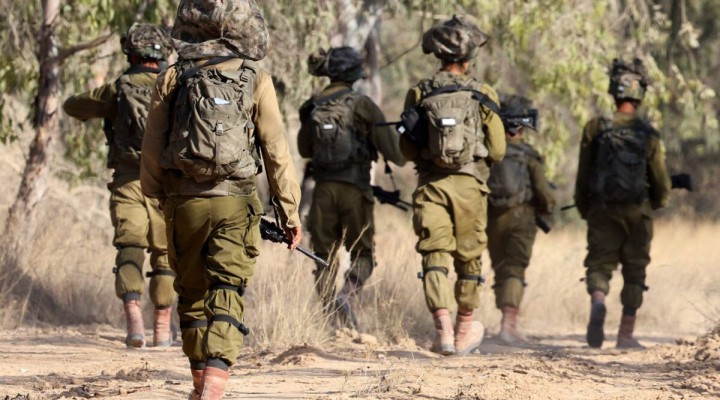The extent of Israel’s internalised violence

Atrocities committed during Israel’s genocide in Gaza have spurred a small number of military reservists to refuse to return to serve in the enclave. “We were inside a house and our commander ordered us to burn it down,” said one, Yuval Green, who added that the reasons given for burning the house down “were not good enough.” Soldiers, he added, loot houses for souvenirs. Other reservists cited different reasons, such as the military operations endangering the hostages and the lack of written rules of engagement for the soldiers.
And yet, the dissociation which Israel instils in its settler society is still evident from the comments as reported by the Guardian. “Suddenly you see a building go up , or a car you’ve been following for an hour suddenly disappear in a cloud of smoke,” explained Michael Ofer Ziv. “It feels unreal. Some were happy to see this, as it meant seeing us destroy Gaza.”
Settler-colonialism is destructive and settlers are participants in the destruction, in varying degrees.
Occupation is, by definition, an aggressive position to take.
The presence of illegal settlers alone is one form of destruction, settler violence is another. Genocide is the ultimate form of destruction. However, despite the awareness garnered in Gaza, at the expense of Palestinians butchered and massacred, of course, there is still a distinct separation made by the reservists between Israel and its state-approved violence. There is little awareness, if any, that Israel needs violence to survive, and that any “security” lauded by the government is also steeped in violence. Without violence, Israel would not exist. The 1948 Nakba is the proof of Israel’s inherent violence, carried out by the Zionist paramilitaries that later became the nascent Israel Defence Forces. The IDF’s origins lie in organised terrorist groups; today the IDF is merely a legalised institution legitimising Israel’s colonial violence.
Did it really have to take a genocide in Gaza for reservists to realise the atrocities that have been carried out against the Palestinians for decades? Was 1948 not enough? Aren’t Israeli settler-colonists, living on stolen land, enough proof that an indigenous presence is being wiped out to accommodate the Zionist project? And if it takes observers the slightest human rights violation to realise a wrong, how can Israeli settlers and reservists remain mostly desensitised, with an almost negligible minority claiming awareness only after Palestinians are paying the ultimate price merely for staying where they rightfully belong? Has Israel’s violence only become tangible now? And how much violence have Israeli settlers internalised to only start voicing awareness now?
During the Nakba, Palestinians were brutalised, ethnically cleansed, buried in mass graves and forcibly disappeared.
The IDF has not altered its tactics; it just has more means today to carry out its aims and objectives, including the complete ethnic cleansing of Gaza. But what Israel accomplished in terms of Palestinian destruction between the Nakba and the genocide should have prompted any settler with a conscience to re-evaluate their presence within the context of Israel’s colonial violence. Before the genocide, Palestinians in Gaza were blockaded, faced a lack of basic necessities, lived through the periodic bombing and military incursions of the enclave, were deprived of freedom of movement and internally displaced. All were a precursor to genocide. If reservists needed genocide to realise Israel’s state and military brutality against Palestinians, the sense of being oblivious to what is going on around them in Israel’s settler-colonial society simply beggars belief.
https://www.middleeastmonitor.com/20240730-the-extent-of-israels-internalised-violence/
 TheAltWorld
TheAltWorld 
0 thoughts on “The extent of Israel’s internalised violence”